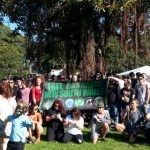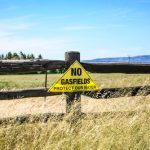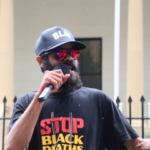Suppression Orders – How Do They Work?

The ICAC suppressed the emails between Peta Credlin, Prime Minister Tony Abbott’s chief of staff, and Paul Nicolaou, the former chief fundraiser for the NSW Liberal Party, earlier this month after lawyers raised concerns that the information contained within them might breach parliamentary privilege.
A number of media organisations joined together to fight the suppression order, and it was lifted a few days later, allowing the controversial emails to be made public.
So what is parliamentary privilege?
Parliamentary privilege is a set of unique powers and immunity from the law granted to members of parliament to enable them to carry out their parliamentary duties without fear of repercussions.
Parliamentary privilege covers internal affairs and disciplinary procedures for those who breach the rules.
Freedom of speech in parliament and exemption from jury duty are also considered parliamentary privileges.
In this case, the suppression order was put in place after lawyers for Liberal senator Arthur Sinodinos suggested that the emails in question could be subject to parliamentary privilege.
The order was lifted after House of Representatives speaker Bronwyn Bishop stated that no claim for parliamentary privilege would be made.
How do suppression orders work?
Suppression and non-publication orders come under the Court Suppression and Non Publication Orders Act 2010.
Under this act, there are a number of grounds for making a suppression order or a non-publication order.
The main idea behind suppression orders is that they need to be in the public interest rather than just to save embarrassment or for the convenience of the person under question.
Suppression orders can be made as a way of protecting the personal safety of those involved in legal proceedings, either as witnesses or by preventing publication of personal details that could leave them vulnerable.
Suppression orders can also be made as a way of preventing prejudice, which could potentially interfere with the natural course of justice.
They can also be made in court cases of a sexual nature to prevent unnecessary embarrassment and distress to witnesses or parties involved in the case.
A suppression order must specify the grounds on which it is being made along with the information or documents that are to be subject of the suppression or non-publication order.
Suppression orders can be made by courts on their own initiative, or on the request of one or more parties who are involved in court proceedings.
Once a suppression order has been made, it is a criminal offence to contravene the order.
The maximum penalty for contravening a suppression order is 12 months’ imprisonment.
Who can apply for suppression orders?
As well as government organisations, individuals can also apply for a suppression or non-publication order.
In 2012, Gina Rinehart applied for a suppression order to keep the details of her family’s trust dispute a secret from the public.
The application was made on the grounds of the alleged risks to her and her family’s safety if details of their finances were made public.
The application was accompanied by a 40-page security report detailing the possible impact on the Rinehart family if the extent of their wealth and financial situation were made public.
Other family members, who the suppression order apparently sought to protect, had no objection to the publication of the details of the dispute.
This application was dismissed on the grounds that there was insufficient evidence that revealing the details of her family’s dispute would be a risk to their safety.
The judge who dismissed the application also expressed concerns that if the application was approved it would lead the way for other high profile people and families to seek suppression orders unnecessarily.
Suppression orders made by government organisations and high profile individuals are often challenged by news organisations.
Suppressing information is often believed to interfere with freedom of reporting by journalists.
It is also argued that suppression orders can affect the principle of open justice if they are made without reasonable cause.






